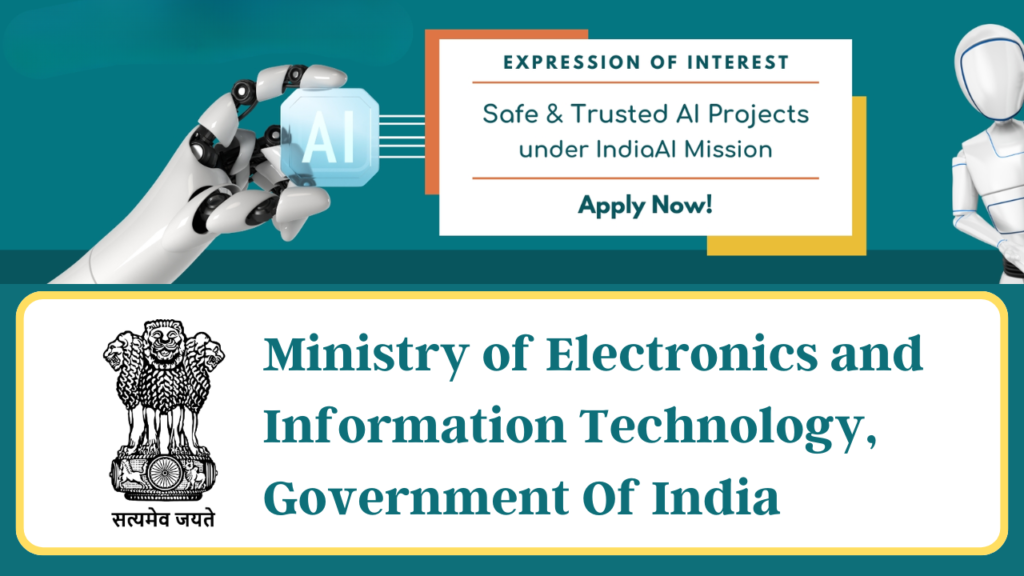
The Ministry of Electronics and Information Technology (MeitY) is a government department in India responsible for promoting and developing the electronics, IT, and digital sectors. It formulates policies and programs to boost technological innovation, enhance digital infrastructure, and drive e-governance initiatives across the country.
MeitY oversees the development of a secure and inclusive digital ecosystem, including initiatives like Digital India, the National Policy on Electronics, and cybersecurity measures. The ministry also works to improve access to technology, promote digital literacy, and support the growth of Indian technology companies on the global stage.
Vision
The electronic development of India represents a transformative force propelling the country toward becoming a developed nation and an empowered society. Via the overall adoption of digital technologies, India has enhanced access to education, healthcare, financial services, and governance. E-governance initiatives have streamlined administrative processes, improving transparency and efficiency.
Digital platforms foster economic growth by enabling entrepreneurship, job creation, and market access for small businesses. By bridging the rural-urban divide, e-Development also empowers marginalized communities, giving them opportunities for socio-economic advancement. This digital shift is central to India’s ambition of becoming a global leader in innovation, sustainability, and inclusive growth.
Mission
The goal is to enhance e-governance by leveraging digital platforms to empower citizens, ensuring equal access to resources and services. This effort aims to drive inclusive growth across Electronics, IT, and ITeS sectors, creating sustainable opportunities. Strengthening India’s leadership in global Internet Governance ensures a more influential role in shaping global digital policies.
The strategy involves developing human resources, fostering R&D and innovation, and increasing the effectiveness of public services through digital solutions. Simultaneously, it focuses on building a secure cyberspace to protect users and maintain trust in digital infrastructure for long-term societal advancement.
Objectives
The organization is working on the following objective.
- Internet Governance: Supporting India’s participation in global internet governance platforms.
- e-Government: Designing e-infrastructure for the efficient delivery of e-services.
- e-Industry: Promoting the growth of electronics hardware manufacturing and the IT-ITeS sector.
- e-Innovation / R&D: Executing a framework for R&D to foster innovation and develop infrastructure in emerging ICT&E fields, alongside mechanisms for translating R&D outcomes.
- e-Learning: Endowing the development of e-skills and knowledge networks.
- e-Security: Protecting India’s cyberspace.
- e-Inclusion: Upgrading the use of ICT to drive inclusive growth.
Functions of the Ministry of Electronics and Information Technology
The functions of the organization are given here.
- Procedure matters concerning Information Technology, Electronics, and the Internet (excluding Internet Service Provider licensing).
- Advancement of Internet, IT, and IT-enabled services.
- Shield of digital transactions, excluding digital payments.
- Supplying support to other departments in promoting E-Governance, E-Commerce, E-Medicine, E-Infrastructure, etc.
- Promotion of IT education and IT-based educational initiatives.
- Concerns related to Cyber Laws and the administration of the Information Technology Act, of 2000, along with other IT-related laws.
- Problems related to online gaming.
- Cybersecurity matters as assigned under the Information Technology Act, 2000 (amended as necessary) and supporting other Ministries/Departments on cybersecurity.
- Advertisement and manufacturing of semiconductor devices in the country.
- International meetings in IT-related matters with institutions such as Internet for Business Limited (IFB),
- Institute for Education in Information Society (IBI), and the International Code Council (ICC).
- Endeavors aimed at bridging the Digital Divide through the Digital India Corporation.Promotion of IT standardization, testing, quality assurance, and the establishment of procedures for IT applications and tasks.
- Electronics Export and Computer Software Promotion Council (ESC).
- National Informatics Centre (NIC).
- Efforts for the expansion of the hardware/software industry, including knowledge-based enterprises, promoting IT exports, and improving industry competitiveness.
- All personnel matters are under the Ministry’s jurisdiction.
- Unique Identification Authority of India (UIDAI).
- Semi-Conductor Laboratory, Mohali.
Official Language Activities
The Hindi division of the Ministry of Electronics and Information Technology is tasked with executing the Union’s Official Language Policy and promoting the use of Hindi within the Ministry and its associated offices and autonomous societies. An equally significant responsibility is the translation of documents related to the Ministry, parliamentary materials, and the speeches/addresses of the Minister, Secretary, and other senior officials.
To carry out the responsibilities of implementing the Official Language Policy, the Ministry of Electronics and Information Technology has established the following structure of officers and employees.
- Joint Secretary (Personnel)
- Joint Director (Hindi)
- Senior Hindi Officer
- Hindi Officer
- Three Hindi Translators
Digital India Internship Scheme
An internship offers students the chance to gain practical work experience under the mentorship of a skilled and experienced supervisor. It stimulates enthusiastic involvement in the learning process through hands-on experimentation and applying classroom learning. To improve the administration and execution of its various programs and to benefit the student community, the Ministry of Electronics and Information Technology has established these “Internship Guidelines” to furnish a structured framework for the engagement of interns for a defined period.